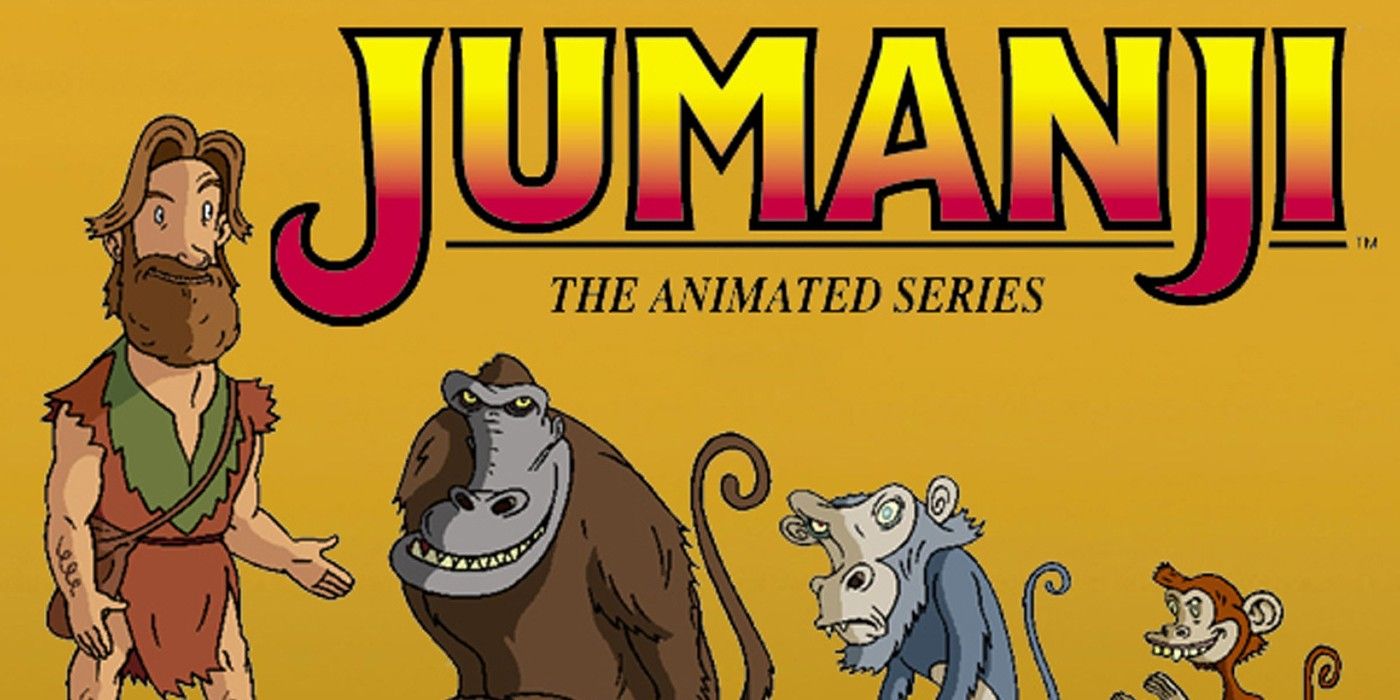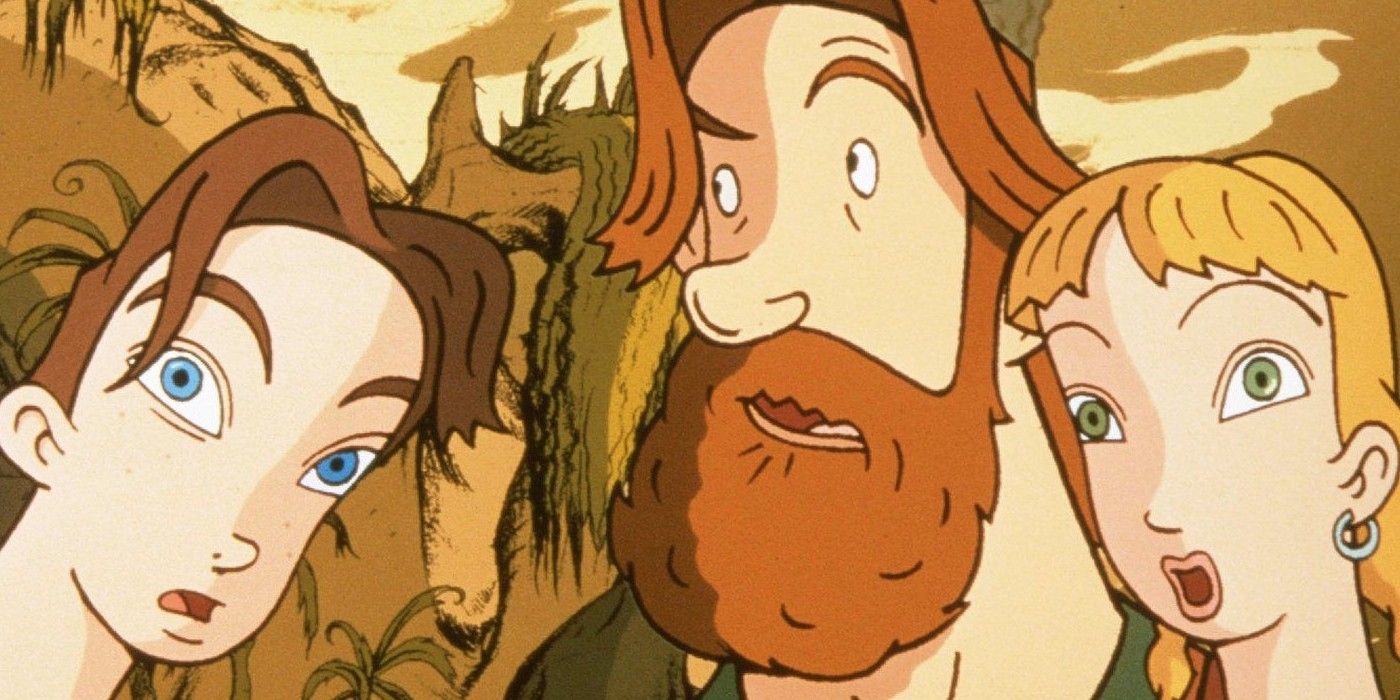The recent Jumanji sequels have brought new life to their franchise, but they weren't the first attempt to expand on the first movie. Running from 1996 (a year after the movie) - 1999, the cartoon reimagined the film's basic plot, and included some of the staple elements which the later films would do their own take on. The series revolved around Judy and Peter Shepherd playing the magical board game, Jumanji which sucks them into its world. In order to get back to their world, the two have to solve whatever clue they are given when they roll. Inside the game they meet and befriend Allen, a player who has been stuck there for decades. In the original film, the character was imprisoned within Jumanji until another played rolled a five or an 8. In the series however, he is stuck because he got distracted and never read the clue which would set him free. Judy and Peter decide they want to help Allen, and keep coming back to Jumanji in the hope they can set him free.
Jumanji: Welcome to the Jungle, and Jumanji: The Next Level took the world only hinted at by Jumanji, and used them to make fun action movies. The cartoon version opted to go in a more horror themed direction. The animals were drawn in a way that was a little bit nightmarish, and the colour palette for the show was full of muted, foreboding colours. The sequel movies did still show a hostile world where everything was trying to kill the players, but the cartoon designed a world which also felt a little bit alien.
The series sets itself apart in terms of how it treats Jumanji as both a game and a world. The sequels would make it a video game, and everything in it was designed to reflect it. The NPC's had limited, functional dialogue. The main characters were given special abilities, and there were the standard user interface menus you'd expect from such a game. Jumanji (the series) did not stick to its theme as rigidly. The main rule that Judy, Peter and Alan had to worry about was the need to solve the clues the game gave them in order to leave. There were other quirks to the world they frequently found themselves in, but it wasn't a game with clearly defined rules so much as a magical world which was accessed through a game. When a new rule did pop up, it was usually to create a problem for the characters that episode, like the episode in which Peter defeats the hunter, Van Pelt, only to find himself turning into the antagonists' replacement. If anything, Jumanji (the series) had the feel of a table top adventure. The characters and locations were all designed in a way which suggested they had their own lives going on when the main characters weren't around, like Trader Slick, or Captain Squint. The series benefitted from a more loose approach to how its game worked. It allowed the show to be slightly more out there with the adventures its heroes went on. In one episode the characters found themselves within a Jumanji version of Brantford, their home town. In another they come across a portal which promises to take them home, only to turn out to be an illusion. There were still a jungle, a desert, and other familiar areas like the ones in the sequel movies, but they weren't "levels" and occasionally they showed some out the box thinking on the part of the creators.
Because the clues the game gives are the only way out of the Jumanji, solving them is the focus of the episode, and they usually serve to teach that lesson's moral. In one episode a character has to admit that there are some things they don't know in order to go home. The episode which finally sees Alan leave Jumanji has him show kindness to a lion when there is seemingly no hope for himself. Not only do the clues tie into the characters' development, seeing them attempt to figure it out reveals aspects of their personalities as well. They gave each episode its own feel and manage to walk the line of calling back to the movie the show is based on, while still taking the concept in a fresh direction. The original film had rhymes to tell the characters what danger they faced, but they were just warnings; the dangers always make themselves known quickly. In the show however, the clues really are puzzles to be solved.
Jumanj (the TV series) isn't just a look at what the franchise used to be, with a take that took more cues from horror than action; it is also what the movie sequels could have been had they gone in a different direction. The decision of the people behind Jumanji; Welcome to the Jungle to make that movie the way they did had its own merits, but it is still tempting to think what they could have done with the franchise had they decided to lean into the horror side of Jumanji. Here, Jumanji isn't just a game. It's a morality play. It's a puzzle. It's a perfect blend of past and potential that sets the cartoon apart from the other entries in the franchise while still managing to be a show for kids. As fun as the more recent movies are, there's something to be said for watching a show where the world is just as sinister as the hell scape only hinted at by Robin Williams in the original movie.


